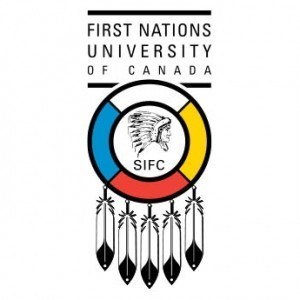Applied Science — Environmental Health and Science at First Nations University of Canada offers students a comprehensive education focusing on the critical relationship between human health and the environment. This program prepares graduates to address pressing environmental challenges through a multidisciplinary approach that combines principles of science, health, policy, and community engagement. Students will develop a solid foundation in biology, chemistry, toxicology, and environmental assessment, along with specialized knowledge in the prevention of environmental hazards, the promotion of sustainable practices, and the protection of public health. The curriculum emphasizes practical skills such as sample collection, data analysis, risk assessment, and environmental monitoring, equipping students to work effectively in laboratories, field settings, and policy environments. Through a combination of coursework, hands-on training, and community-based projects, students gain valuable experience in evaluating environmental risks, implementing health and safety standards, and communicating complex scientific information to diverse audiences. The program encourages critical thinking, ethical decision-making, and a commitment to Indigenous perspectives and community well-being, aligning with the university’s mission to serve Indigenous students and communities. Graduates of Applied Science — Environmental Health and Science are prepared for careers in environmental consulting, public health agencies, government regulatory bodies, research institutions, and community organizations dedicated to environmental stewardship and health promotion. The program also provides a strong foundation for students interested in pursuing further studies or research in related fields. Overall, the program combines rigorous academic coursework with practical training opportunities that foster the development of skilled professionals ready to make a positive impact on environmental sustainability and community health across diverse settings.
The Applied Science – Environmental Health and Science program at First Nations University of Canada offers students a comprehensive education in the fundamental principles of environmental health, science, and their applications. This program is designed to prepare graduates for careers in environmental protection, public health, and related fields by providing a strong foundation in scientific concepts, analytical skills, and practical experience. Students will explore topics such as environmental chemistry, microbiology, toxicology, epidemiology, and environmental policy, gaining the knowledge necessary to assess and manage environmental hazards that impact human health. Throughout the program, students are encouraged to develop critical thinking and problem-solving skills through hands-on laboratory work, field studies, and research projects. The curriculum emphasizes a multidisciplinary approach, integrating biological, chemical, and social sciences to address complex environmental issues. Graduates will be equipped to work in government agencies, consulting firms, healthcare organizations, and community-based initiatives focused on environmental and public health improvement. The program also emphasizes the importance of Indigenous perspectives and sustainable practices in addressing environmental challenges affecting First Nations communities and other populations. Students will have opportunities for internships and community engagements to apply their learning in real-world settings. Upon completion, graduates will be prepared for diverse careers, or they may pursue further education in environmental health, public health, or related graduate programs. The Applied Science – Environmental Health and Science program at First Nations University of Canada represents a commitment to fostering environmentally responsible professionals dedicated to improving health outcomes through science-based solutions.
Program requirements for the Bachelor of Applied Science in Environmental Health and Science at First Nations University of Canada typically include the completion of a series of core courses, electives, and practical training components designed to prepare students for careers in environmental health. Admission standards generally require a high school diploma or equivalent, with a focus on science and mathematics courses such as biology, chemistry, mathematics, and physics. The program emphasizes foundational knowledge in environmental science, including module topics like environmental toxicology, public health principles, pollution control, and environmental policy. Students are expected to complete 120 undergraduate credit hours over the course of the program, which involves a combination of lecture-based courses, laboratory work, and field studies to provide practical experience. The curriculum is structured to promote understanding of environmental risk assessment, hazardous materials management, and sustainable practices, which are critical in protecting public health and the environment. Additionally, the program often requires students to participate in internships or cooperative education placements with government agencies, environmental consulting firms, or health organizations to gain real-world experience. Language proficiency requirements may include demonstrating skills in English, and students might also need to complete prerequisite courses depending on their academic background. Successful completion of the program culminates in a capstone project or thesis that synthesizes knowledge gained throughout their coursework. Academic advising and tutoring services are available to support students in meeting their program milestones and career goals. Overall, these requirements ensure graduates are well-equipped with the technical skills, practical experience, and theoretical knowledge necessary to excel in environmental health fields and contribute to community health initiatives.
Funding for the Applied Science — Environmental Health and Science program at the First Nations University of Canada is typically available through a combination of government-sponsored financial aid, scholarships, bursaries, and student loans. The university encourages prospective students to explore multiple sources of financial support to help cover tuition fees, study materials, and living expenses during their course of study. Canadian citizens and permanent residents are often eligible to apply for federal and provincial student aid programs, such as the Canada Student Loans and Grants, which provide financial assistance based on need and other eligibility criteria. Additionally, the university offers specific scholarships and bursaries for Indigenous students and those pursuing degrees related to environmental health and science, aiming to support community development and promote diversity in science fields.
Students are advised to consult the First Nations University of Canada’s financial aid office for detailed information on application procedures, deadlines, and the types of financial assistance available. Many students also take advantage of external scholarships offered by environmental organizations, health agencies, or Indigenous community groups, which may have specific criteria aligned with the program’s focus area. Part-time work opportunities on or near campus can also supplement students’ income, providing practical experience alongside their studies.
The program’s costs may vary based on whether students are full-time or part-time, their residency status, and the duration of their studies. For international students, higher tuition fees usually apply, and additional funding options or private loans may be necessary. The university’s financial services team can assist students in creating personalized financial plans and exploring all available funding options. It is important for students to start applying early for scholarships and financial aid to maximize their chances of obtaining support. By leveraging these various funding sources, students enrolled in the Environmental Health and Science program can better manage their educational expenses and focus on their academic and professional goals.
The Applied Science — Environmental Health and Science program at the First Nations University of Canada is designed to prepare students for careers dedicated to protecting public health and the environment. This program focuses on understanding the complex interactions between human activities and the natural environment, emphasizing the importance of sustainable practices and environmental stewardship. Students gain foundational knowledge in biology, chemistry, and environmental science, alongside specialized training in areas such as environmental monitoring, risk assessment, and pollution control. The curriculum often includes coursework in water and air quality analysis, hazardous waste management, environmental legislation, and community health practices. Practical hands-on training is an integral component of the program, providing students with laboratory experience, fieldwork opportunities, and project-based learning. Graduates are equipped to work in government agencies, environmental consulting firms, public health organizations, and community advocacy groups. The program also aims to develop critical thinking, data analysis, and communication skills, enabling graduates to effectively address environmental challenges and promote healthy living conditions. As part of a broader commitment to Indigenous perspectives and cultural relevance, the program integrates Indigenous knowledge systems and promotes community engagement. Students may have opportunities for internships, cooperative education placements, and research projects that connect academic learning with real-world application. Overall, the Applied Science — Environmental Health and Science program at First Nations University of Canada prepares students to be proactive professionals dedicated to fostering sustainable environments and enhancing community health and well-being.

